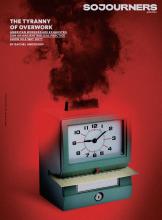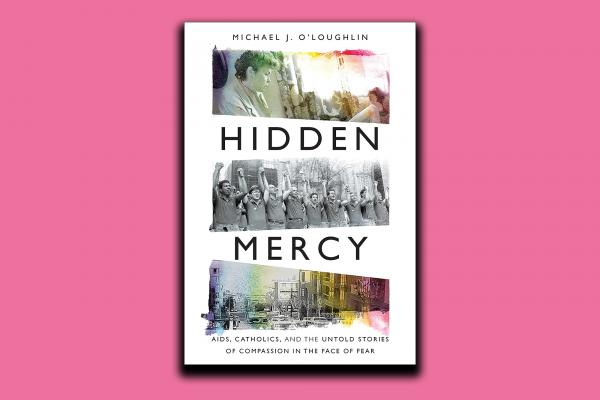AFTER TWO YEARS of COVID-19, the world yearns to move forward. Meanwhile, we commemorate 40 long years of the HIV/AIDS epidemic in the U.S. The first years were characterized by silence, as government, churches, and other institutions generally ignored people living with HIV and dying from AIDS. However, compassionate individuals broke the silence and offered care and advocacy. In Hidden Mercy: AIDS, Catholics, and the Untold Stories of Compassion in the Face of Fear, Michael J. O’Loughlin gives voice to Catholics who followed the gospel call to serve these marginalized in the U.S. in the 1980s and ’90s.
Hidden Mercy, based on the podcast series Plague: Untold Stories of AIDS and the Catholic Church, focuses on the experiences of a few individuals—including a nun in the Midwest, a gay artist priest, and a lay Catholic nurse. One championed the first public HIV/AIDS education program—notably held in a Catholic church. Others advocated for hospital beds for HIV patients, established hospice homes, or ministered to the homeless and persons of color, who were—and still are—disproportionately affected by HIV/AIDS. They facilitated pharmaceutical clinical trials that included persons of color. Others led interfaith memorial services. These Catholics ministered to the sick while the institutional Catholic Church was first silent, later insensitive, and at times heartless in written and verbal statements targeting gay people with HIV/AIDS.
Read the Full Article

